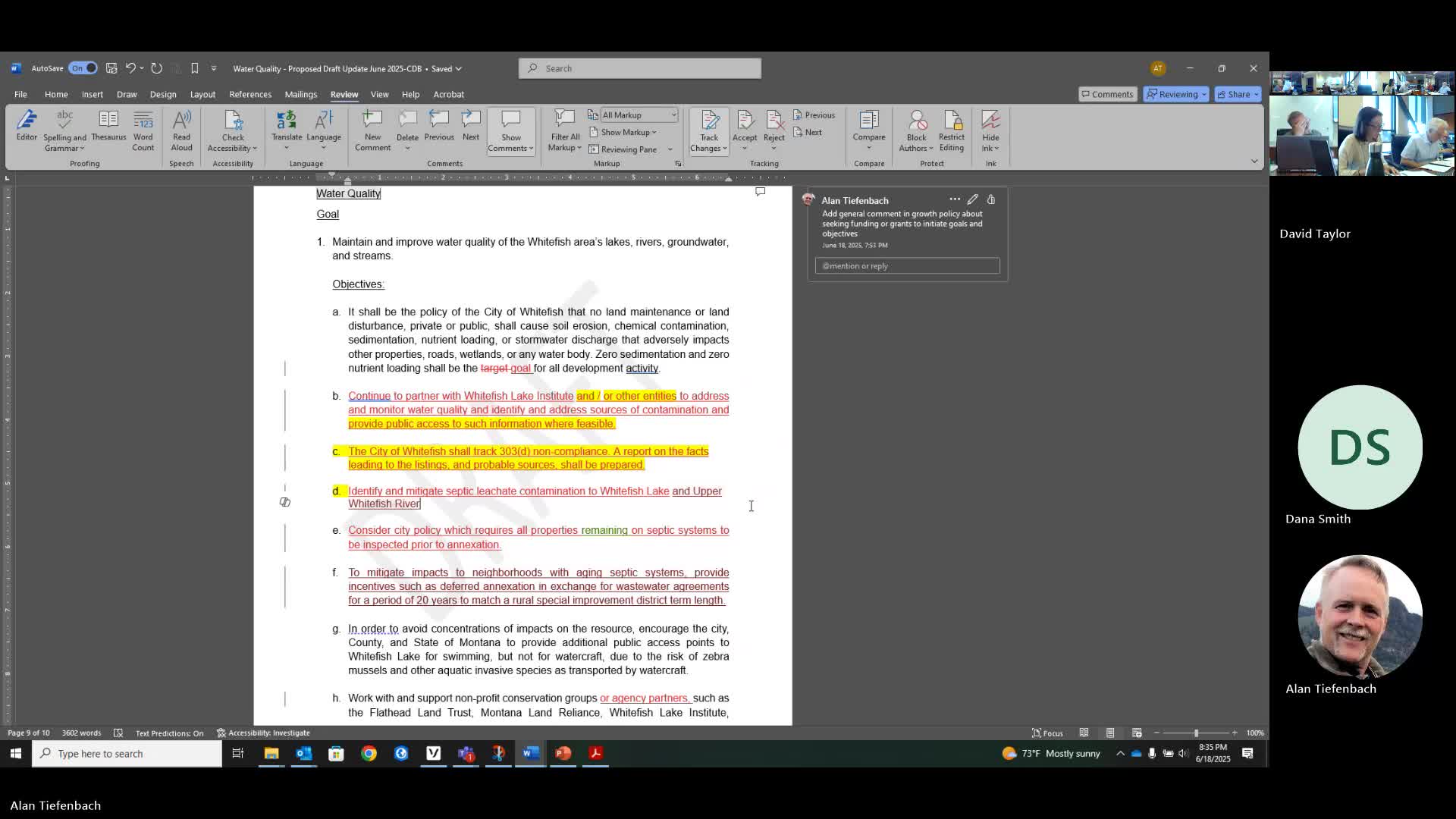Article not found
This article is no longer available. But don't worry—we've gathered other articles that discuss the same topic.
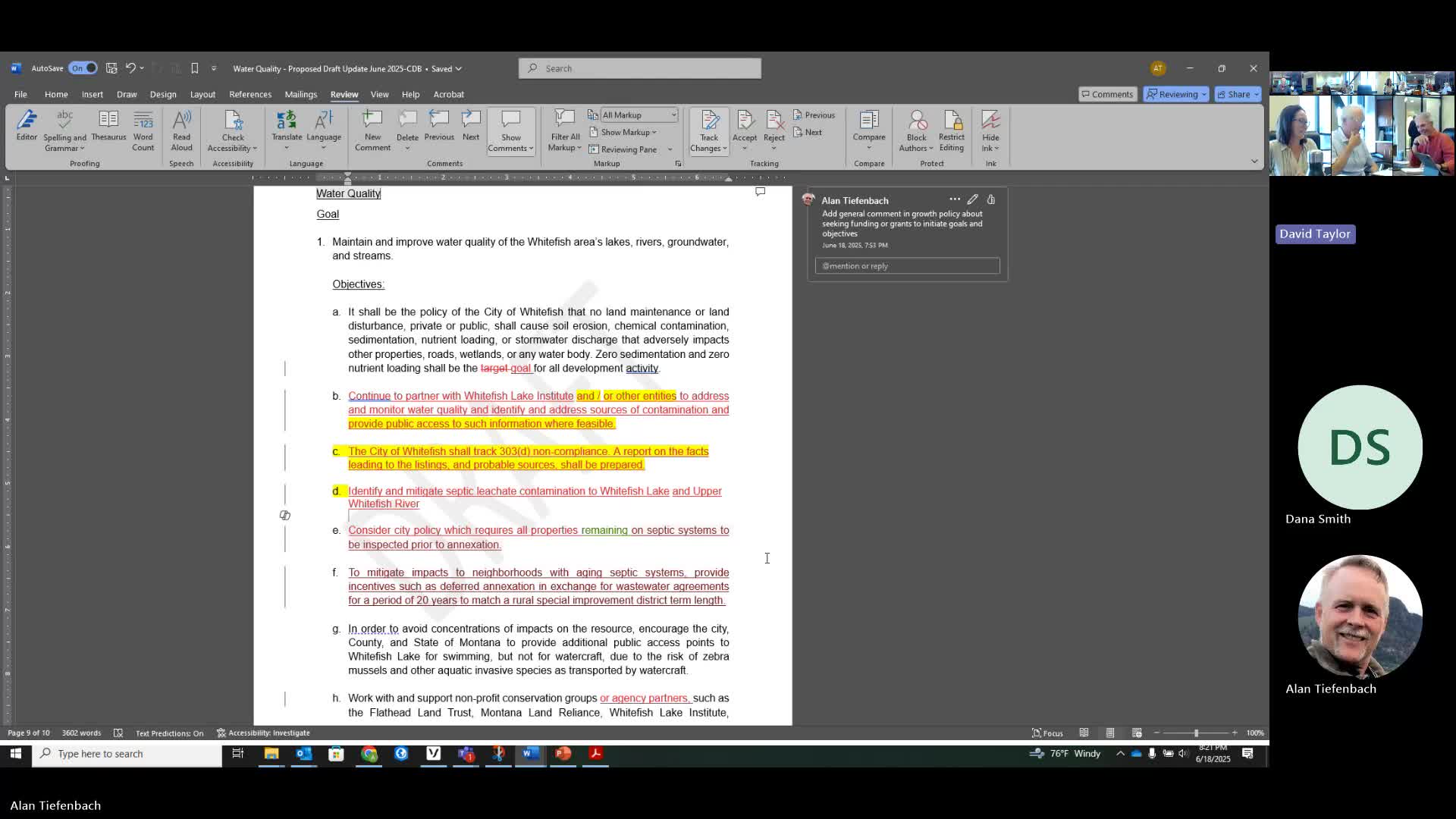
Public warns Haskell Basin unsafe; board backs pursuing secondary egress for Big Mountain
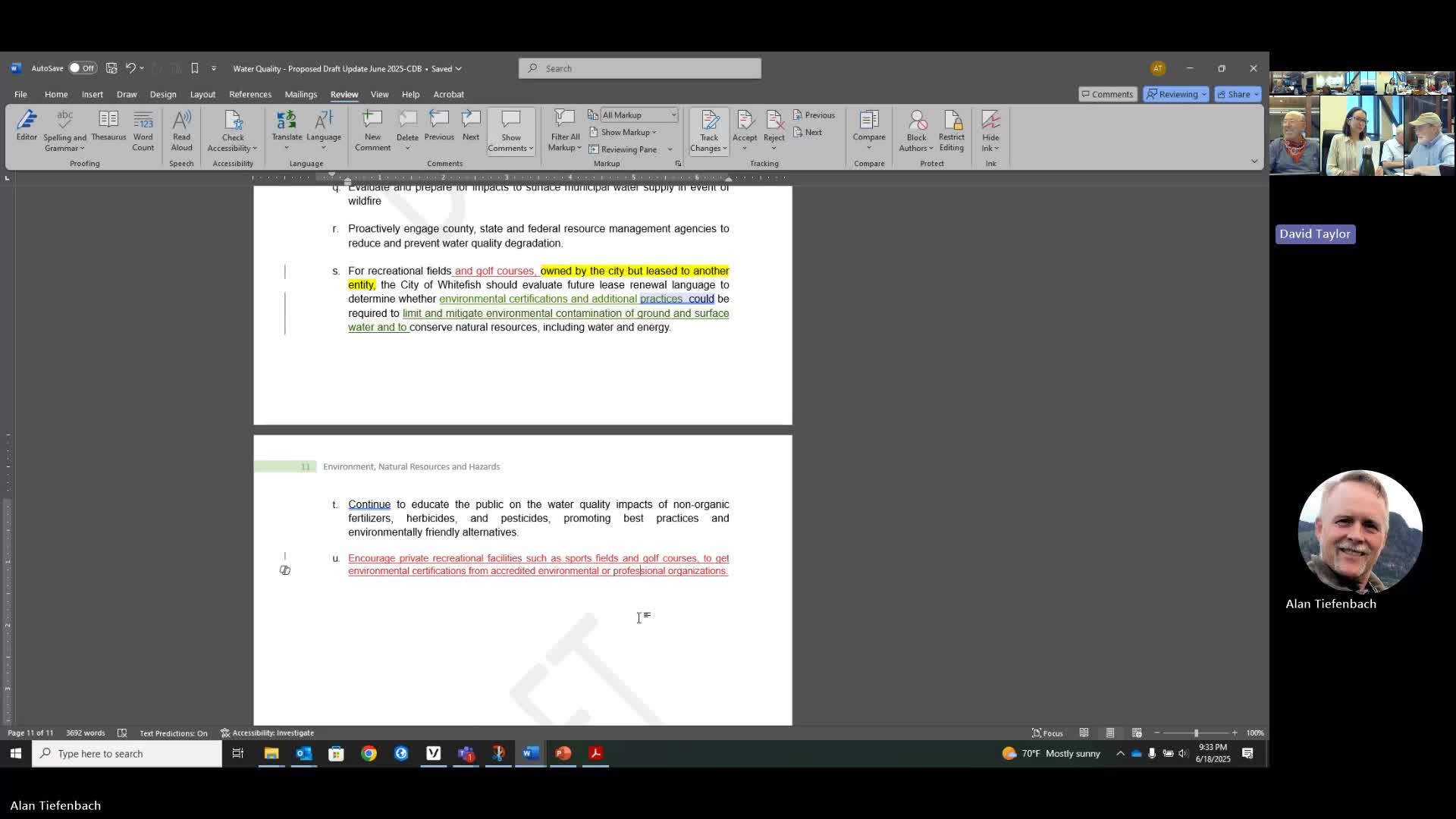
Planners recommend exploring environmentally friendly fireworks; goal to reduce perchlorate contamination
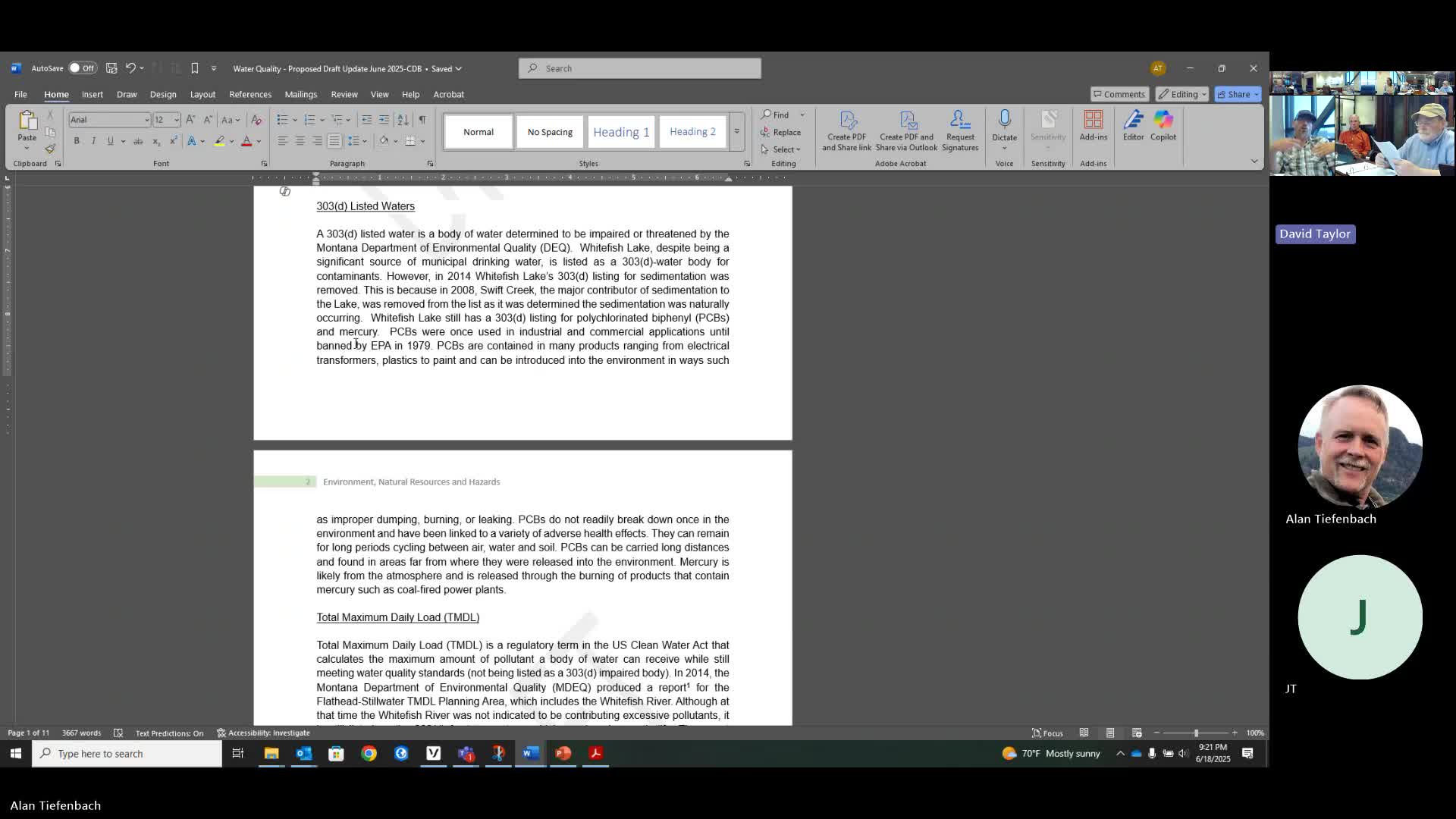
Planners encourage environmental certification for city-leased and private recreational fields and golf courses
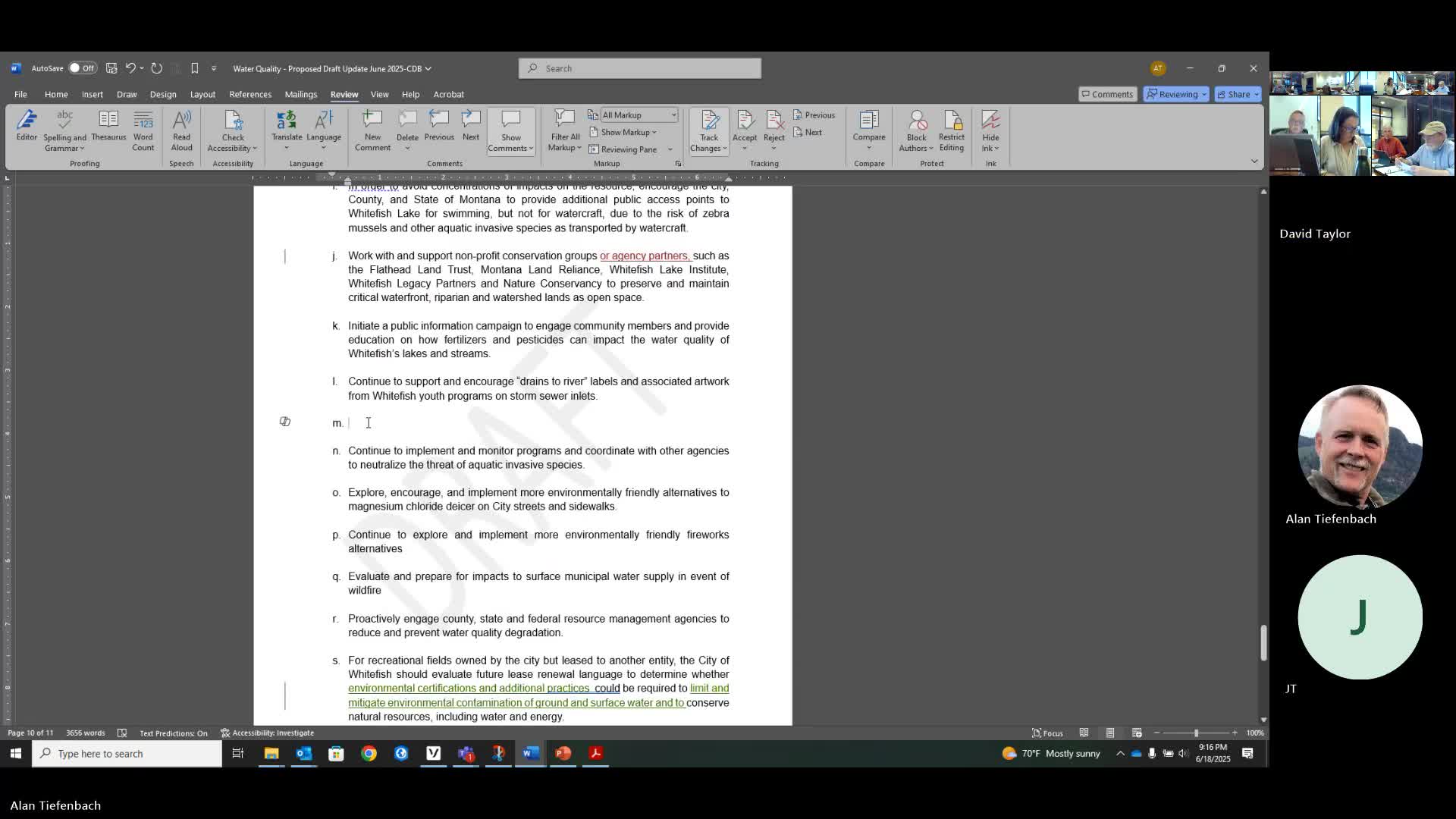
City to reference MS4 stormwater requirements; staff to coordinate public-works implementation
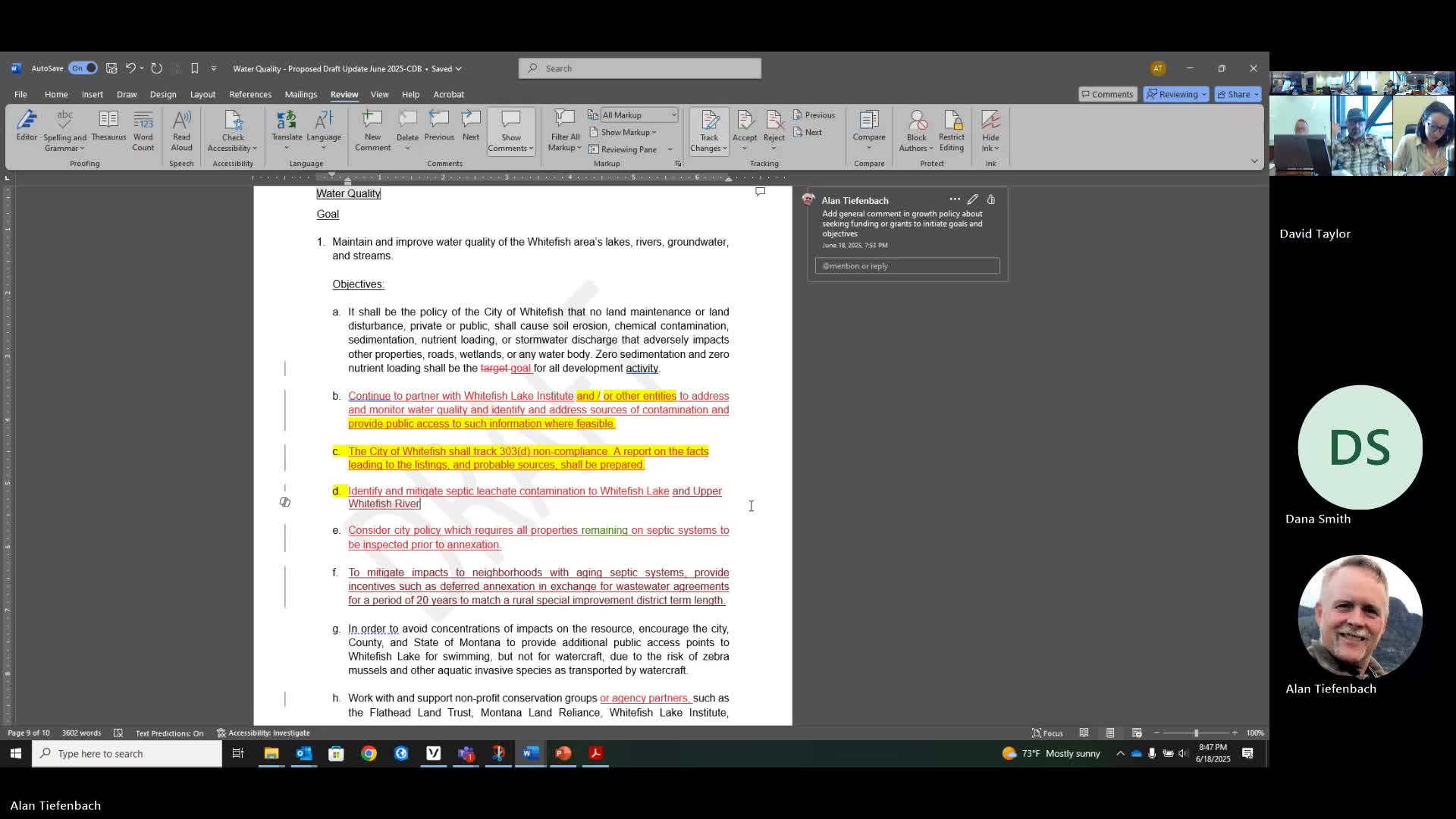
Planners propose annual public reporting on BNSF cleanup and monitoring affecting Whitefish Lake and River
